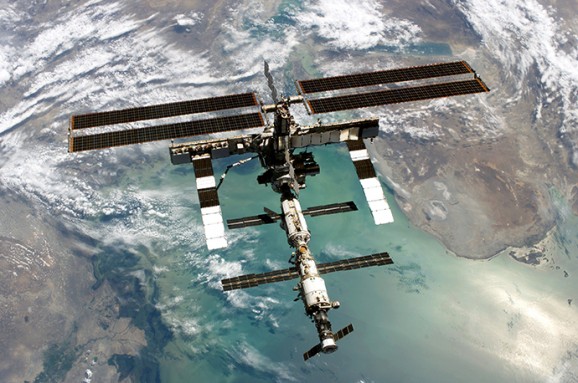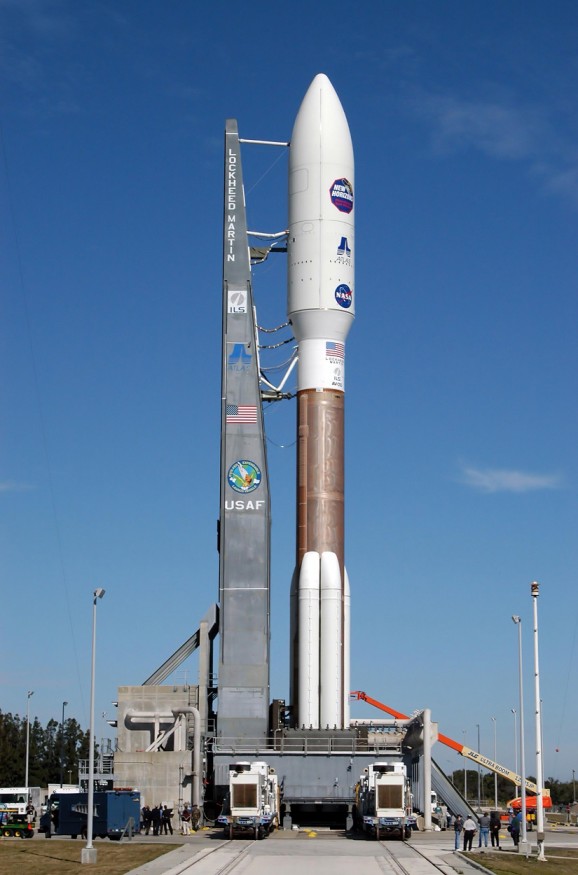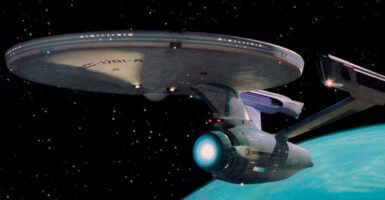NASA Cuts Ties With Russia, Except For ISS
This article is more than 2 years old
 Even though three new ISS crew members, including one American, launched into space aboard a Russian Soyuz capsule just over a week ago, NASA is calling a halt to many of its collaborative operations with Roscosmos, the Russian space agency, because of the worsening situation in the Ukraine. Fortunately, the one area in which the NASA will continue to work with Russia is on ISS operations. Soyuz is currently the only manned spacecraft that makes the trip, and the fallout of not cooperating with regards to the ISS is something NASA doesn’t want to put to the test, especially given that there are two Americans currently working at the ISS.
Even though three new ISS crew members, including one American, launched into space aboard a Russian Soyuz capsule just over a week ago, NASA is calling a halt to many of its collaborative operations with Roscosmos, the Russian space agency, because of the worsening situation in the Ukraine. Fortunately, the one area in which the NASA will continue to work with Russia is on ISS operations. Soyuz is currently the only manned spacecraft that makes the trip, and the fallout of not cooperating with regards to the ISS is something NASA doesn’t want to put to the test, especially given that there are two Americans currently working at the ISS.
NASA made the move because of “Russia’s ongoing violation of Ukraine’s sovereignty and territorial integrity.” Space agency administrator Charles Bolden says that he doesn’t think Russia will try to prevent American access or communication with the ISS, and says that he believes Russia needs the U.S. as much as the U.S. needs Russia when it comes to maintaining operations. However, the halt of relations includes “NASA travel to Russia and visits by Russian Government representatives to NASA facilities, bilateral meetings, email, and teleconferences or videoconferences”—in other words, everything but the ISS.
The situation only underscores the need for NASA to figure out a way to get its astronauts into space without relying on outside agencies. It is “laser-focused” on such an endeavor, and will be requesting more funding from Congress. Great. We all know how that goes. Still, the agency is optimistic about domestic manned launches as soon as 2017.
 Maybe the ISS and those aboard won’t be affected by these frosty developments, but in addition to furnishing the Soyuz capsules, Russia also sells RD-180 engines to the U.S., which we use for the Atlas V rockets that bring satellites, including military and national security payloads, into space. The U.S. typically launches 8-9 such satellites via the Atlas V each year, and there are a many more launches scheduled for the next two years. Defense Department secretary Chuck Hagel affirmed that the Pentagon is worried about such a result, and doesn’t think “there’s any question” that the RD-180 engines deal will be reviewed. This could be a problem, given that neither United Launch Alliance nor Lockheed Martin, which manufacture the Atlas V, have no back-up plan.
Maybe the ISS and those aboard won’t be affected by these frosty developments, but in addition to furnishing the Soyuz capsules, Russia also sells RD-180 engines to the U.S., which we use for the Atlas V rockets that bring satellites, including military and national security payloads, into space. The U.S. typically launches 8-9 such satellites via the Atlas V each year, and there are a many more launches scheduled for the next two years. Defense Department secretary Chuck Hagel affirmed that the Pentagon is worried about such a result, and doesn’t think “there’s any question” that the RD-180 engines deal will be reviewed. This could be a problem, given that neither United Launch Alliance nor Lockheed Martin, which manufacture the Atlas V, have no back-up plan.
Just another reason to go with SpaceX’s Falcon rockets, something Elon Musk has already proposed to Congress.











